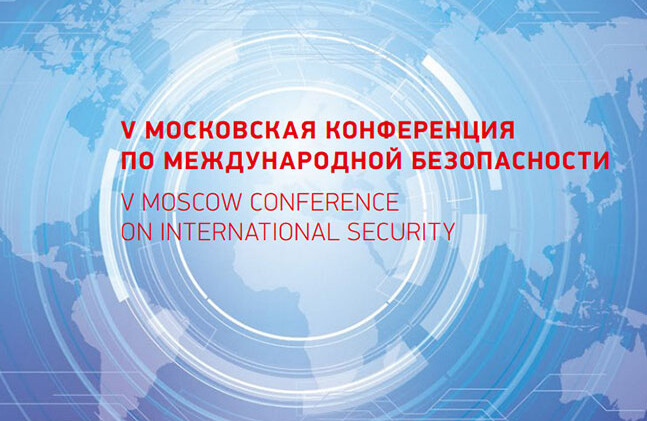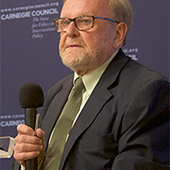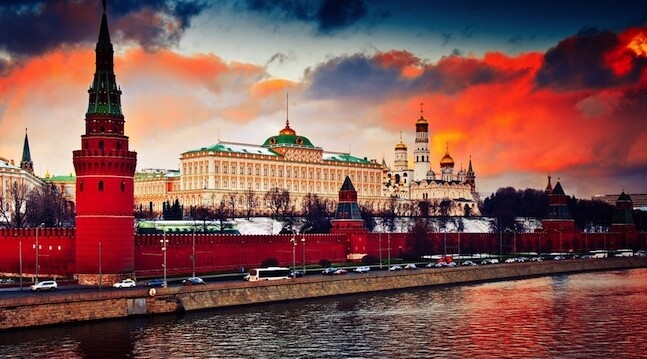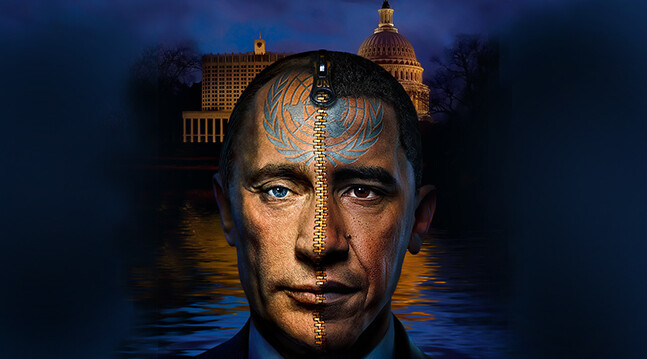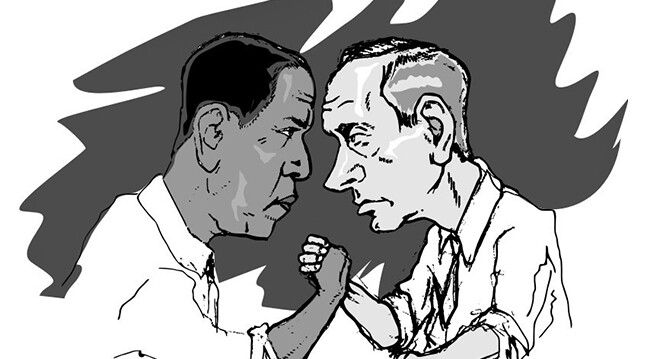In April 2016, I attended the Fifth Annual Moscow Conference on International Security, organized by the Russian Ministry of Defense. This was no trivial event; there were more than 600 delegates from 83 countries, representing every continent, and we were lodged in what used to be the old Hotel Ukraina, one of those distinctive, Stalinesque architecture structures that pepper the Moscow skyline, next to the Kiev Station along the banks of the Moscow River. (A flashback: I had overnighted at this hotel in the mid-1990s en route to Kiev, the "highlight" of my mercifully brief stay being a mid-night hubbub, which my colleague and I learned was a murder, most likely a mob "hit", on our very floor. As an emblem of the enormous strides the Russian capital has made over the past 20 years, the hotel is now a Radisson, basking in the deserved name of the Royal Hotel.)
The conference itself was seamlessly organized, from arrival at the airport, where we were greeted—and passport and immigration control greatly expedited—by civilian employees of the Ministry, to the three days of sessions on the central topic of international cooperation on security threats, especially terrorism. A global array of speakers articulated a corresponding range of country/area-specific concerns, much of which was familiar but nevertheless important to hear:
- A Chinese delegate spoke of the concern over the "East Turkistan" independence movement in that country's far west Uighur regions (Xinjiang).
- A South African listed piracy, now not just in the Horn of Africa but in the west, in the Gulf of Guinea; human trafficking, most especially the growing threat of Boko Haram, which has metastasized from Nigeria to Niger, Chad, and Benin; poor governance leading to increased "internal conflicts" across the continent, in South Sudan, Kenya, and Somalia; and chronically high unemployment and rising inflation as factors in youth in African nations being a "target for extremism and lawless gangs."
- A Lebanese described that country as the "first line of defense
against terrorism," the defensive weapon being the "stubbornness of Lebanon."
- An Indonesian spoke of the importance of "soft power" in projecting in the world's largest Muslim nation the message of a "moderate Islam….countering ISIL by Islamic teachings and patriotism" (he also cautioned that an estimated 7 million Indonesians are "pro-ISIL").
- A Croatian warned of the "frozen conflicts" in Europe, and, in general, the threat to the continent from the Eurozone economic stresses, the refugee crisis, and the rise of extremist movements. Europe may once again be "balancing between war and peace."
There were two principal takeaways from the packed three-day agenda. First,
there is much going on, in terms of intergovernmental cooperation, which is
not noticed or reported in the U.S. media. There was repeated reference to the
importance of regional arrangements in general—the Shanghai Cooperation
Organization for counterterrorism, border security and narcotics control, for
example; a "new security architecture" as former Afghan president
Hamid Karzai put it; the Organization for Security and Cooperation in Europe
(OSCE), as an "inclusive platform" for discussion to prevent "escalation
of armed encounters" (a clear reference to growing NATO-Russian tensions
in East Europe) and to lead "discussion on [preventing] cyber-attacks;
and the association of South East Asian Nations (ASEAN), in which Russia is
playing an increasing role as a member (along with the United States and China,
among others) of the ASEAN Regional Forum.
Second, this was by no means (as one had perhaps feared) a "United States-bashing"
session. In opening the conference, both Russian Ministers Shoygu (Defense)
and Lavrov (Foreign Affairs) emphasized the positive as well as the negative
aspects of the relationship. Shoygu spoke of a "positive assessment"
of U.S.-Russian cooperation on Syria, for example, and this was supported by
a delegate from Pakistan who praised the joint U.S.-Russian role in "weakening
the center of gravity" of ISIL in Syria.
The obvious crisis point at present is that of European security—"very
worrying" [Shoygu], "deadlocked" [Lavrov]. A non-Russian delegate
chided the "U.S. insistence on a 'with us or against us' [dichotomy]"
as a barrier to a "true global coalition" against international terrorism.
Russian concerns were also expressed by two well-connected and internationally
respected scholar-experts, Sergey Rogov and Alexei Arbatov. Rogov spoke of the
need for the United States and Russia to "get back to the 1972 agreement
" on avoiding incidents at sea, with NATO ships "nearing Russian borders" [in the Black Sea]; to revive serious discussion—and to get beyond
mutual accusations—on the Intermediate Nuclear Forces Treaty; and to promote
dialogue between NATO and the Russian-led Common Security Treaty Organization
on terrorism, narcotics, and other common threats. This harkens back, of course,
to Russian proposals for a definitively post-Cold War, "Lisbon to Vladivostok"
security architecture. Arbatov cited the proposed missile defense systems in
Europe1 as a source of stress, especially since the United States had represented
the threat from Iran as justification for deployment.
All in all, the conference was a positive and inclusive exercise, with the non-presence
of any official U.S. representative a symptom of the current general absence
of constructive engagement, even on critical issues of shared interest, such
as terrorism. One final note on that point: this was not merely a gathering
of Russia-friendly nations. There were delegates from the Scandinavian countries,
France, Germany et al; the most notable absentees were the United States and
the United Kingdom.
NOTES
1 As I write this on
May 12, it has just been announced that the United States "has activated
a land-based missile defence station in Romania, which will form part of a larger
and controversial European shield" (as per the
BBC).
